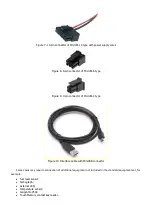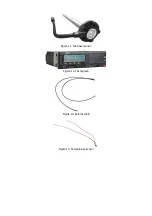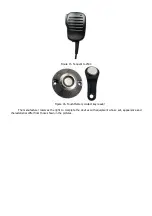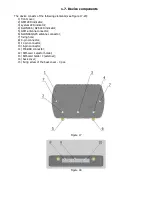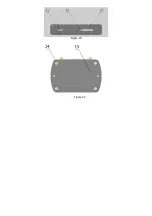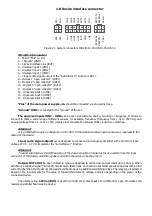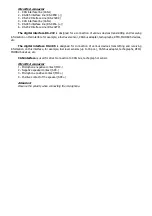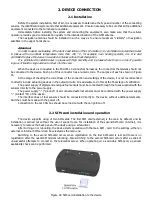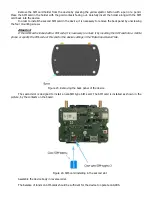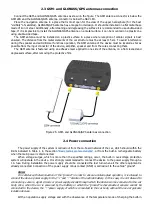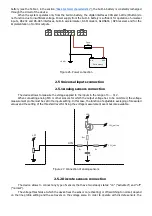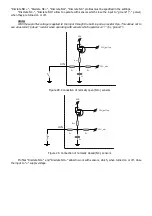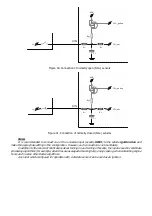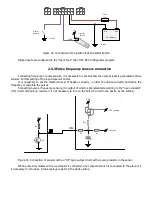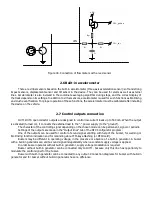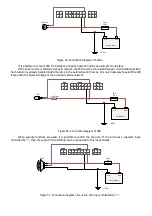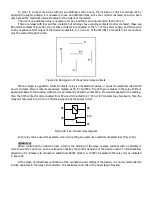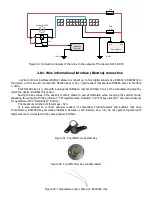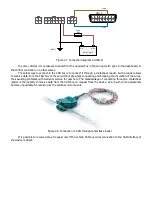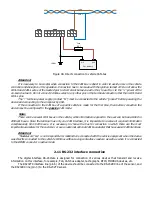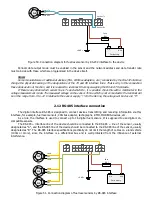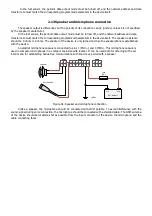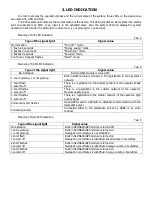
CPU_adc
R
1
R
2
UIN
C
1
R
pu
CPU_pull-up
VDD
Figure 34. Connection of flow meters with a reed sensor
2.6 Built-in accelerometer
There are virtual sensors based on the built-in accelerometer (three-axis acceleration sensor): soft and strong
impact sensors, displacement sensor and tilt sensor in the device. They can be used for alerts as well as external
lines. Accelerometer is also involved in the coordinate averaging algorithm during stops, and the correct display of
the track depends on its settings. In addition to virtual sensors, accelerometer is used for such functions as EcoDrivng
and crush event fixation. For proper operation of these functions, the accelerometer must be calibrated after installing
the device on the vehicle.
2.7 Control outputs connection
OUT1-OUT4 open collector outputs are designed to control low-current loads up to 500 mA. When the output
is activated (turned on), it connects the external load to the "-" power supply (to the "ground").
The character of the controlling signal depending on the chosen mode can be permanent, signal or periodic.
Settings of the outputs are made in the “Output lines” tab of the NTC Configurator program.
One of the outputs can be used for control of sound signal emitting with help of the buzzer, for warning or
EcoDriving function indication and for reminding about TM-key attaching (or RFID card).
Buzzers may be different in operating voltage, in the presence or absence of a built-in generator. A buzzer
with a built-in generator can emit a sound signal independently when a constant supply voltage is applied.
In order buzzer operates without built-in generator, supply voltage modulation is required.
Buzzer without built-in generator can be connected only to OUT1, because only this line has opportunity to
modulate the control signal for the buzzer.
Buzzer with built-in generator can be connected to any output. Connection diagrams for buzzer with build-in
generator and for buzzer without build-in generator have no difference.

